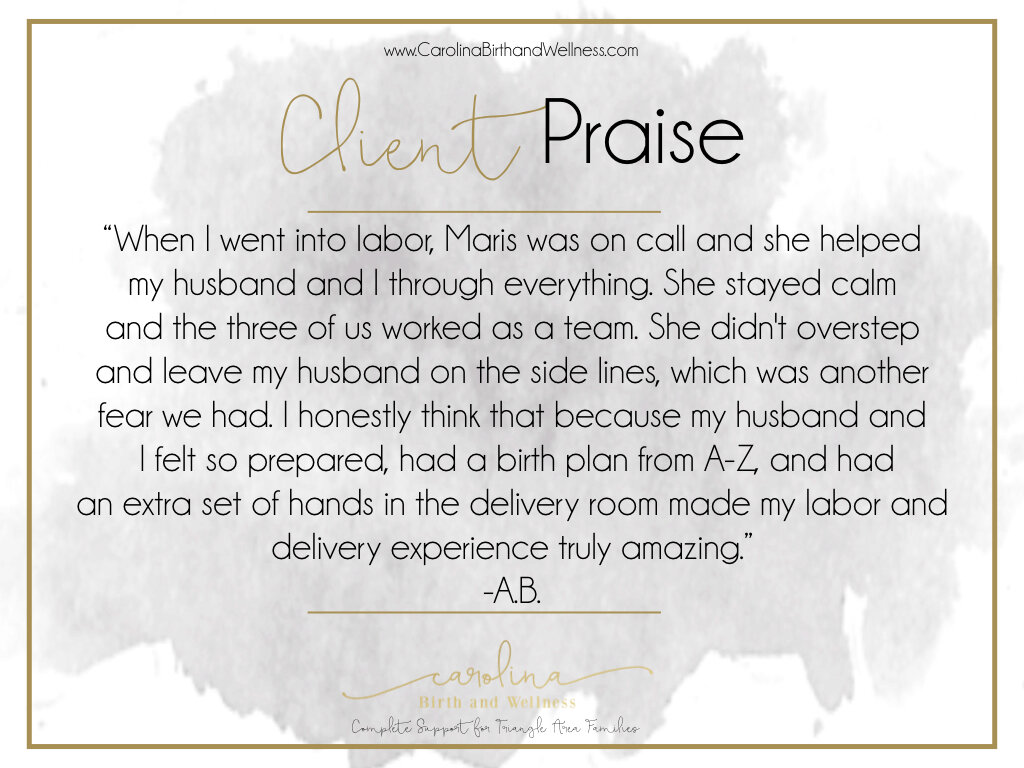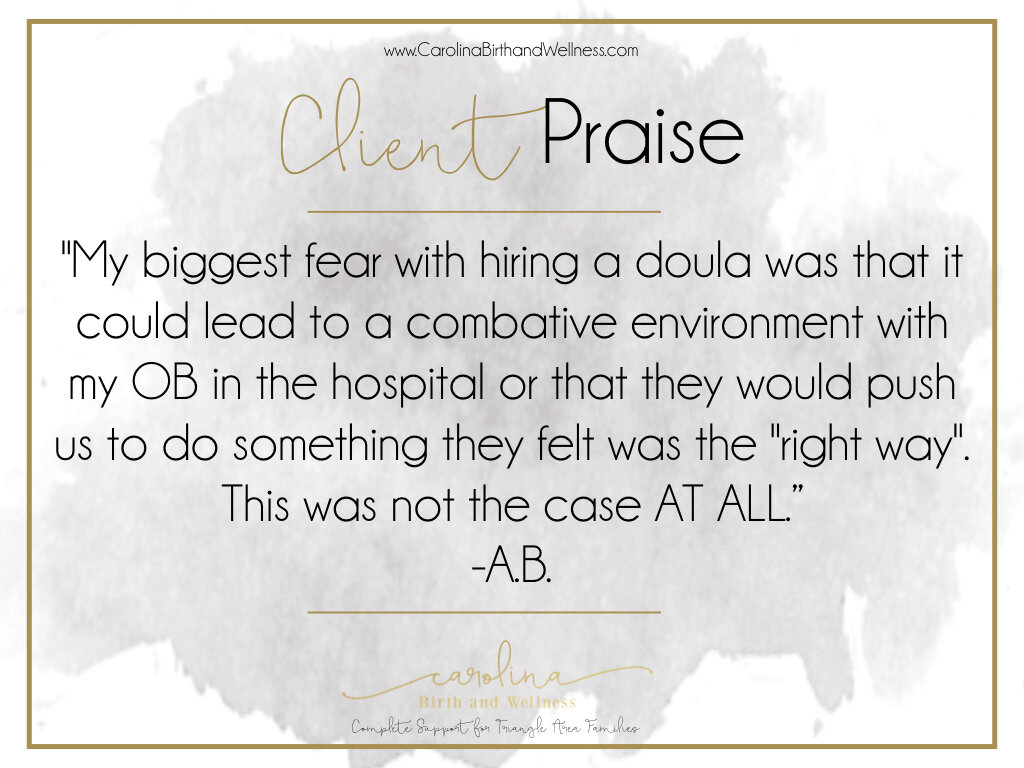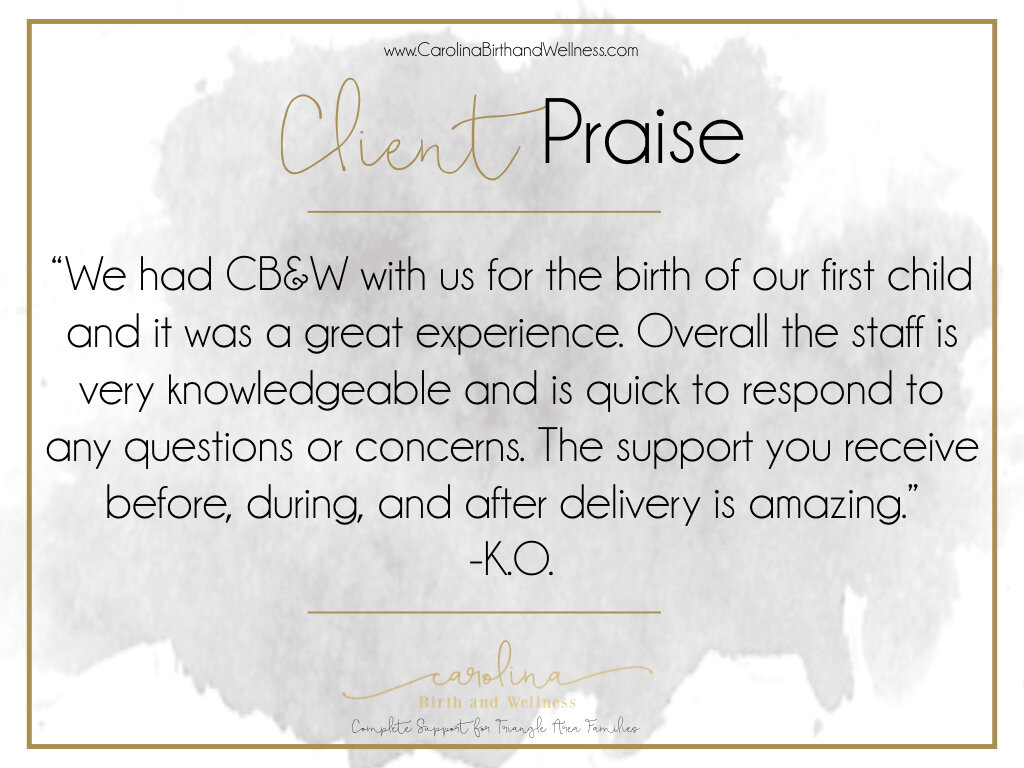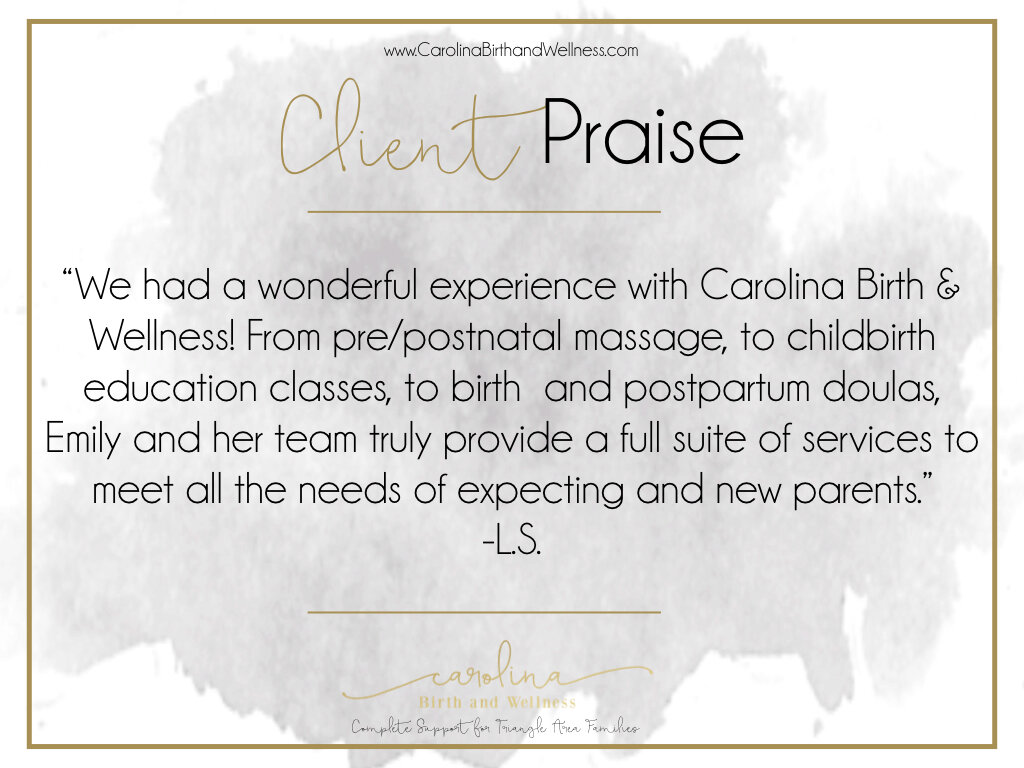Navigating Who is Present in the Delivery Room
The Differences Between Doulas, Nurses, Midwives, and Doctors
During birth, there can be any number of people present for your birth. We decided it was time to break down exactly how doulas, nurses, midwives, and doctors fit into your birth plan and delivery room.
Doula
Doulas provide continuous emotional, physical, and educational support to pregnant individuals and their families. A doula is more a coach, and concerned with helping clients with decisions and various emotions that may arise during the process of birth.
Main Role: Doulas are to provide non-medical support to the birthing person and family. Doulas coach you through pregnancy and childbirth, and provide individual and continuous support through the entire birth process.
Training: Doulas take a training and obtain a certificate from a certifying agency. They have no medical training and should never be giving medical advice or performing medical procedures.
Nurse (RN)
Nurses support birthing individuals in a medical, physical, educational, and emotional capacity. They can have from one to multiple patients and generally move in between patient rooms to support them and the rest of the medical team as needed.
Main Role: Nurses are present to assist with labor and delivery. They are able to take vital signs, provide assistance to the birthing person, and assist the Certified Nurse Midwife or Doctor for a safe and healthy delivery.
Training: Nurses obtain either a 2 or 4 year degree at an accredited nursing school After graduation, they take a certifying exam to become a registered nurse (RN). Nurses are well trained through clinical and lecture throughout their education, and passionate about caring for patients.
Certified Nurse Midwife (CNM)
CNMs are trained in the midwifery model of care, while also having a strong educational background in nursing. CNMs provide normal medical care for routine well-woman visits, pregnancy, birth, and postpartum care. CNMs work in birth centers and hospitals to help deliver babies. In North Carolina, CNMs are the only legal home birth providers.
Main Role: CNMs are healthcare providers, so their role is about educating and facilitating health pregnancies, births, and normal gynecological care, as well as delivering babies.
Training: CNMs have bachelors degrees in nursing, and then have attended a master level graduate program that specializes in midwifery. They are highly educated healthcare providers that have a strong foundation in nursing, the midwifery model of care, and modern obstetrics and gynecology.
Doctor of Obstetrics and Gynecology (OB/GYN)
OB/GYNs provide medical and surgical care to women. They normally have a speciality (or specialities) that can range from well-woman and pre-conception care, through pregnancy and birth, and to menopause. There are several subspecialties that some providers pursue that require further training and certifications that focus on complications and more complex issues that patients may experience.
Main Role: OB/GYNs are highly trained medical and surgical providers are responsible for the patient’s medical needs during well patient visits, pregnancy, birth, and the immediate postpartum recovery.
Training: OB/GYNs attend four year medical schools, complete four years of OB/GYN residency program, and successfully pass board certifying exams. They are highly trained and experts in their field.
We hope the common theme you have noticed is that you are in great hands regardless of what path you decided to take as you begin to build your birth team. Please contact us if you are interested in having a doula at your birth!









